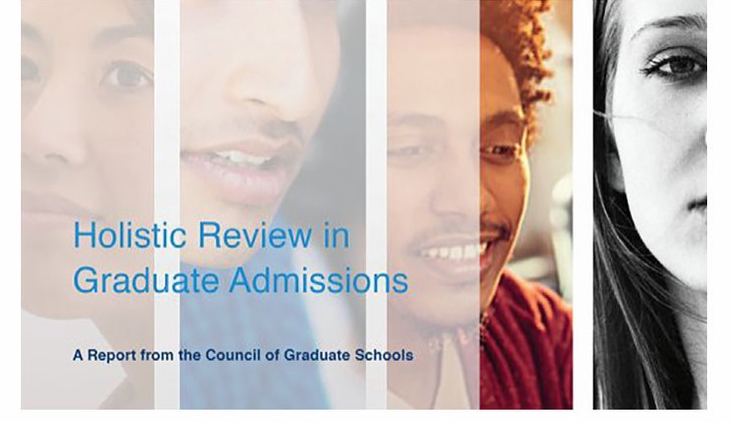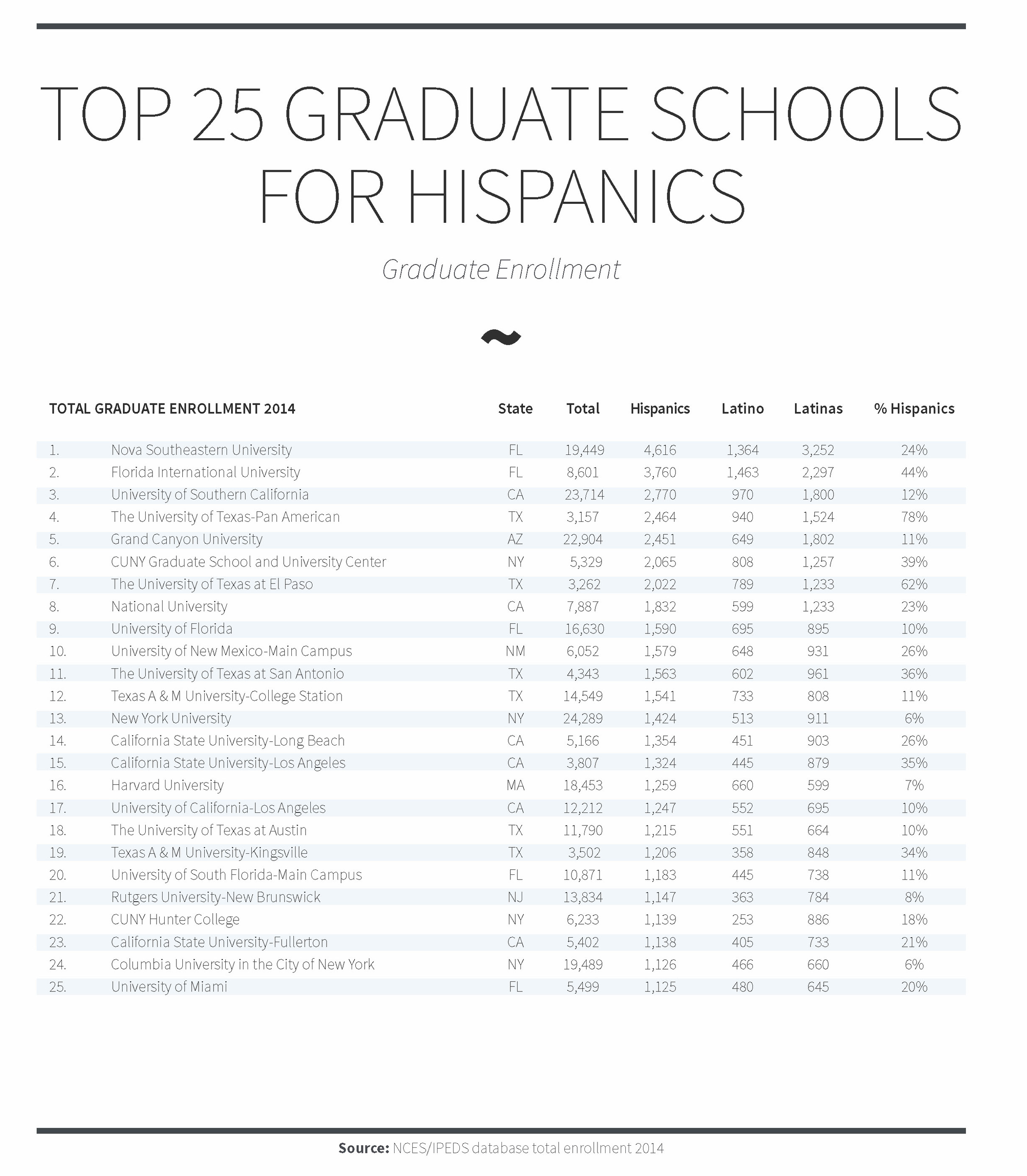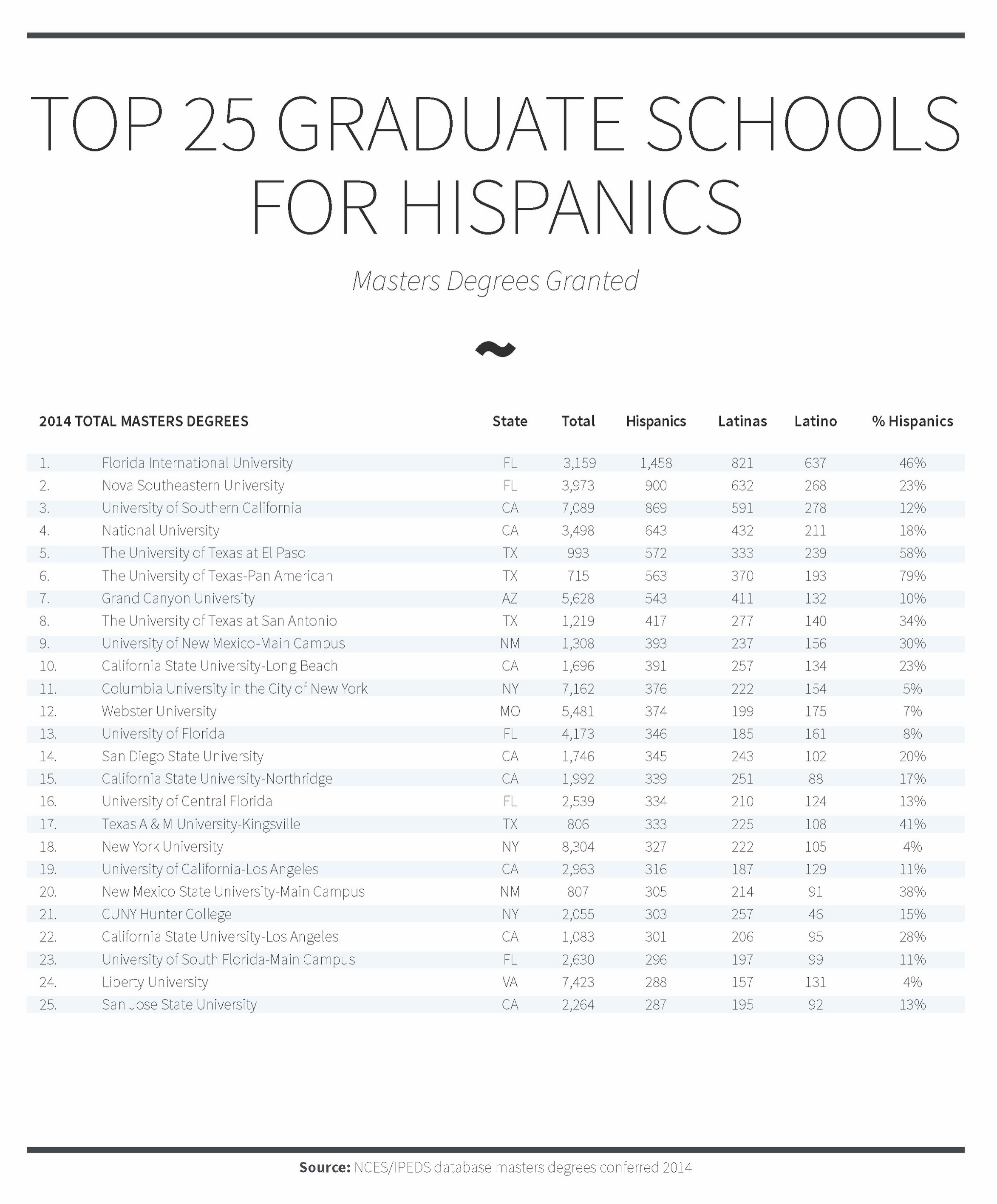The Council of Graduate Schools (CGS) has released a report that outlines the findings of a year-long research project on holistic graduate admissions. Supported by Hobsons, a student recruitment and college admissions consultant company, the project takes a look at emerging best practices and surveys more than 500 university admissions professionals to better understand the current state of graduate admissions at U.S. institutions.
Editor’s note: Each year Hispanic Outlook in Higher Education presents the top 25 colleges and universities with the largest number of Hispanic graduates and enrollees in graduate programs. As we continue to monitor the effectiveness of diversity programs to drive these numbers, we came across this recent report from the Council of Graduate Schools. We think it sheds new light on the topic of holistic graduate admissions. Read on and see if you agree.

Washington, D.C. -- The Council of Graduate Schools (CGS) has released a report that outlines the findings of a year-long research project on holistic graduate admissions. Supported by Hobsons, a student recruitment and college admissions consultant company, the project takes a look at emerging best practices and surveys more than 500 university admissions professionals to better understand the current state of graduate admissions at U.S. institutions.
Around the country, colleges and universities are adopting holistic graduate admissions processes in response to research finding that quantitative measures of student merit, such as standardized test scores and GPA, may not accurately predict success in graduate school and may disadvantage underrepresented, non-traditional and older students. Holistic review, also known as wholefile or comprehensive review, considers a broad range of characteristics, including noncognitive and personal attributes, when reviewing applications. Higher education leaders consider holistic review a promising practice for achieving diverse cohorts of students with varied experience, backgrounds and expertise.
“This is an opportune moment for graduate schools and programs to prepare to reevaluate their admissions processes as graduate institutions await the U.S. Supreme Court’s decision on Fisher II and continue to grapple with what it means to create inclusive campuses,” CGS President Suzanne T. Ortega said. “This timely report provides context and guidance for graduate schools and their institutional partners.”
Holistic Review in Graduate Admissions reports the results of a survey of over 500 universities on their current practices and emerging needs in graduate admissions; a two-day intensive workshop of researchers, graduate deans, admissions professionals and other experts; and a review of the scholarly literature. The study surfaces promising practices and recommendations for graduate institutions seeking to learn more about or to implement holistic admissions processes and provides an overview of existing resources for institutions.
Among the report’s key findings:
The graduate education community would benefit from a clearer understanding of what constitutes a truly “holistic” graduate admissions process for master’s and doctoral candidates.
Fifty-eight percent of all survey respondents reported that limited staff and faculty time is the greatest barrier to performing more holistic admissions processes.
The report recommends deliberately tying admissions processes to institutional and program missions and emphasizes the importance of data-driven decisions. It also encourages universities to ensure that all students, once admitted, are provided learning environments that make it possible for them to succeed.
“While academic achievements are important, we know that long-term student success depends on a variety of factors that make up a whole person,” said Stephen M. Smith, President of Advising and Admissions Solutions at Hobsons. “We’re proud to support the work of CGS to increase access to graduate education and improve graduate student outcomes by helping institutions find applicants who are the right fit during the admissions process and then to provide support on campus until they reach their goals.”
A complimentary copy of the report can be accessed at http://cgs-net.org/innovation-graduate-admis-sions-through-holistic-review.

